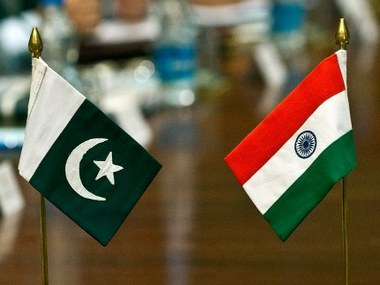Pakistan has completely failed in its ambition of drawing international attention to the situation in Jammu and Kashmir, following the killing of Hizbul Mujahideen commander Burhan Wani in July. This has led many civilians in the neighbouring country, including members of the political class, to question the wisdom and viability of its India policy. Is a serious review of the policy now underway? Prime Minister Nawaz Sharif’s foreign policy advisor, Sartaj Aziz, informed the Pakistan Senate on Tuesday that a high-powered official committee would be set up – presided by Foreign Secretary Aizaz Chaudhry – to work out a “doable and sustainable India-Kashmir policy”. The committee will comprise senior officials of the Ministries of Defence, Interior and Information, as well as from representatives from the army and intelligence agencies, including the ISI. [caption id=“attachment_2958778” align=“alignleft” width=“380”]  Pakistan has completely failed in its ambition of drawing international attention to the situation in Jammu and Kashmir. AFP[/caption] The establishment of such a committee would be a routine affair in most countries, where reviews of important policy areas are periodically undertaken by officials at the political level, however, Pakistan is different. Its army has never given up control of the country’s important foreign and security policies. Certainly, Pakistan’s India policy has always been within its domain. Thus, many pertinent questions arise about the timing and the leadership of the Chaudhry committee. Nawaz has always tried to wrest control of Pakistan’s India policy from the army. These attempts were witnessed in his two previous terms, as in the current. The army has never let him off the leash, though. The immediate trigger for the committee’s appointment may be a response to the Senate’s interest in going into reasons why Pakistan’s diplomatic efforts to highlight the so-called human rights situation in the Kashmir Valley have failed. But the fact that the Chaudhry committee has been announced on the eve of General Raheel Sharif’s retirement suggests that it is one more endeavour of the prime minister to gain control of the country’s India policy. It is unlikely that the new army chief, whoever he is, will allow the country’s India policy to go outside of the army’s remit. This is despite the combative and unprecedented words, “doable and sustainable”. Their clear implication is that the Generals have not succeeded in establishing a coherent India policy – one which serves Pakistan’s national interest. Nawaz’s basic charge against the Generals is correct. However, he cannot escape his share in Pakistan’s failure at getting India condemned for the way it handled the Kashmir Valley agitation. He also does not seem to have made any real attempt to restrain the Generals from raising the temperatures along the LOC, or in reining in the anti-India jihadi tanzeems. Nawaz has been under great political pressure lately because of his family’s alleged corruption, as revealed in the Panama Papers recently. Although obliquely, Gen Sharif too joined Imran Khan and other political parties in demanding that Nawaz should subject his family and himself to a probe. This weakened Nawaz’s ability to exert himself in policy matters but he could have still taken a stand, especially after the Uri attack. Instead, he chose to launch a blistering attack on India at the United Nations General Assembly, only to be met with complete international rebuff. The truth is that Prime Minister Narendra Modi’s steps towards Pakistan, after it raised the ante following Wani’s killing, took Pakistan by surprise. Earlier, Pakistan was pro-active and India reactive; now the roles have reversed. Pakistan has been compelled to maintain, as best as it can, the basic postulates of its approaches toward India; especially its core policy that any use of conventional forces by India may lead to nuclear war. That threat was challenged by Indian army’s surgical strikes following the Uri attack. India needs to maintain its present pro-active posture, which sends the clear message that India is no longer willing to accept Pakistani calibrated terrorism and hostility. Thus, the decision to respond aggressively along the LoC to Pakistani provocative firing is appropriate as per the pro-active approach. This is painful for many Indian civilians and soldiers are making the supreme sacrifice. India has to preserve with the present approach so that Pakistan and the international community gets the message that Indian policy has changed. There are voices being raised in India about where this “tit for tat” approach is going. Is it leading to a dangerous “abyss” that may result in unforeseen consequences? It is this thinking that led India in the past to exercise restraint and allowed Pakistan to strike India through terrorism. The international community lauded India’s restraint while putting Pakistan under pressure, but eventually let it off the hook. A changed Indian approach will lead the international community to ask Pakistan to stop its provocative actions. The onus has to be on Pakistan to change course. The Chaudhry committee has to be shown that it will have to take note of a new Indian resolve to end Pakistani terror and negativity. That if nothing else, India may put a few scratches on the Pakistani army’s mind though its obdurateness will no doubt continue. India is in for the long haul and Modi has to prove his mettle.
Pakistan set up a high powered official committee, presided by Foreign Secretary Aizaz Chaudhry, to work out a ‘doable and sustainable’ India-Kashmir policy
Advertisement
End of Article


)

)
)
)
)
)
)
)
)



